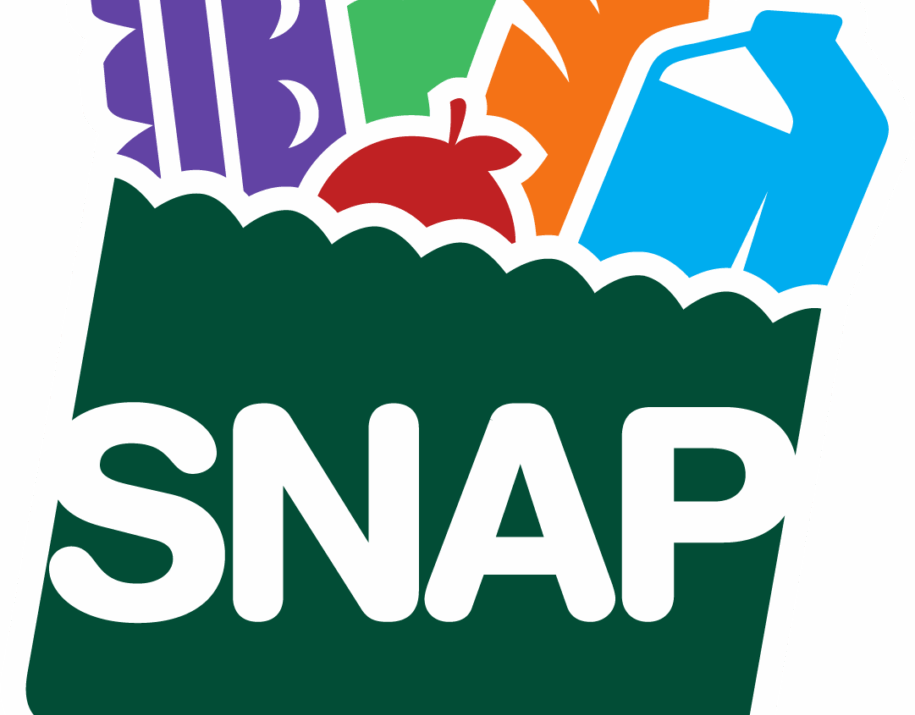Rhode Island’s food pantries and the thousands of people they serve brace for a hunger crisis as the Trump administration withholds $29 million in federal food assistance.
EAST PROVIDENCE — Nancy Costa is 74 years old. She lives alone in Rumford, and she works part-time for the East Providence School District. She gets paid a small stipend of about four dollars an hour through the AmeriCorps Seniors program, and she loves working with the kids.
Like many senior citizens in Rhode Island, Costa receives a small monthly disbursement from the federal Supplemental Nutrition Assistance Program (SNAP) program to augment her grocery budget. Her SNAP allotment is small, and does not cover all of her grocery costs.
“On my SNAP, I can get some bread, I can get some milk – you know, a small one – and I can get a dozen eggs. And after that, I’m on my own,” said Costa.
Costa is one of millions of Americans facing food insecurity as a result of the Trump administration’s attempt to suspend SNAP amid the ongoing government shutdown. Here in Rhode Island, about 145,000 people rely on the monthly disbursement of $29 million in federal SNAP assistance to keep food on the table. About a third of those people are children, and many of the adults are senior citizens who live alone.
“I can’t get a piece of steak, or pork chops, or even chicken is expensive,” said Costa. “SNAP really helps a lot of people. With the way the economy is today, the way the rents are today, the gas prices, people cannot do it on their own.”
While the U.S. District Court for the District of Rhode Island granted a temporary restraining order on Friday to block the Trump administration’s effort to halt the SNAP program, Nancy Costa and millions of other seniors, veterans, children and families around the country still did not receive their scheduled disbursement of federal food assistance on Saturday.
Judge John J. McConnell Jr. said in his decision the Trump administration “must distribute” aid from USDA contingency funding reserves as soon as possible, and tasked the administration with submitting a plan or “at least an update” on how it would comply with his order by noon on Monday.
In a separate federal court case in Massachusetts, Judge Indira Talwani ruled that the government is required by law to use emergency funding sources to make at least partial payments to SNAP recipients, and gave the administration until Monday to tell the court whether or not it planned to adhere to the ruling.
On Friday, President Donald Trump (or someone on his staff) wrote a Truth Social post in response to the court rulings. In the post, Trump blamed the Democratic party for the SNAP crisis, claimed the two court opinions contradicted each other, and said, “our Government lawyers do not think we have the legal authority to pay SNAP with certain monies we have available.”
Despite all of that bluster, Trump also said in the same post that he has instructed government lawyers “to ask the court to clarify how the federal government can legally fund SNAP as soon as possible.”
Bonnie Pielarski is the founder of a mutual aid hub and food pantry in Woonsocket called The Milagros Project, which is one of the nonprofit plaintiffs in the Rhode Island District Court case. She said the number of people accessing their food pantry had approximately doubled over the past year, and cited rent increases as a key economic factor leading to high levels of food insecurity in Woonsocket prior to this SNAP crisis.
“People are trying to make some really difficult decisions,” said Pielarski. “All of these things are the perfect storm in a city like Woonsocket where poverty levels are so high, education rates are so low, and people don’t see the economic factors and the tie-ins of both. We now really have a perfect storm brewing with the SNAP funding cutoff…we’re really bracing for the worst right now.”
Rhode Island Governor Dan McKee declared a state of emergency last Tuesday in response to the SNAP suspension, which allowed the state government to access some funds to replace a small fraction of what is being withheld by the federal government. In an email to Ocean State Stories, Governor McKee’s press secretary Olivia DaRocha detailed some of the actions Governor McKee has taken to address the immediate need.
DaRocha confirmed the state will be distributing $3 million in TANF (Temporary Assistance for Needy Families – a block grant from the federal government) funding to eligible households on Nov.1 and an additional $3 million on Nov. 15 if the crisis is still unresolved.
Thus far, that $6 million allocation of TANF funds is the only money directly covering any of the $29 million gap caused by the suspension of federal SNAP funding. About 65,000 SNAP recipients in Rhode Island come from families with children; they are thus eligible to receive TANF funding from the state and should receive a smaller than usual disbursement in November.
The Rhode Island Foundation is donating $1 million to food banks, pantries, and nonprofits in coordination with the state government and the Rhode Island Community Food Bank, and has launched a campaign to ask the public for matching donations. DaRocha confirmed that the state government also provided $200,000 out of its own coffers to the RI Community Food Bank for statewide distribution.
DaRocha also acknowledged in her email that the approximately 80,000 SNAP recipients who do not qualify for TANF support (a population that includes single seniors like Nancy Costa) “may have to rely exclusively on food pantries and meal distribution systems during this crisis,” but “the state is continuing to explore options for further support.”
Laura Jones, the director of the East Providence senior center, said that while the state’s network of food pantries is going to be a literal lifesaver for thousands of Rhode Islanders this month, many seniors live with one or more conditions that limit their ability to take advantage of the pantries: some don’t drive, some have limited ability to stand in line for long periods of time, and some have disabilities or health conditions that limit their mobility or make it difficult for them to carry heavy grocery bags.
She also pointed out that many senior citizens don’t cook, often opting to spend their SNAP dollars on frozen microwave dinners because they struggle with either the physical dexterity or the mental acuity required to follow a multi-step, multi-ingredient recipe.
Jones said many senior citizens in the East Bay and around the state already struggle with food insecurity on a day-to-day basis and are heavily reliant on SNAP and other forms of food assistance to get by every month.
“Many of the senior centers around the state are meal sites where seniors can come and have a midday meal,” said Jones. “I’m anticipating that we’ll get more and more seniors, with the drop in the SNAP benefits, coming to our meals. But that program is running out of money too.”
She said some seniors depend fully on SNAP for their monthly grocery budget, and voiced her concern that some of her elderly clients will have to choose between buying food and buying their medication if they don’t receive their November disbursement.
Her remark was a stark reminder that the suspension of the SNAP program is not just an abstract question of policy, but a matter of life and death for millions of people. Within the next few days, senior citizens in Rhode Island may be forced to choose between going without medicine, or going without food.
Jones described the predicament of one woman who comes into the senior center twice a month, after each SNAP disbursement, and asks for help to place a grocery delivery order over the phone. Jones said, “She can’t order any more groceries until her SNAP benefits get replenished. So she’s waiting, you know, to get that SNAP benefit before she can get more food. And she comes here every day for lunch as well. I don’t know how she’s going to be able to manage.”
Another group of Rhode Islanders acutely affected by the suspension of the SNAP benefit is families with children. With the assistance of Federal Hill House employee Patricia Castillo, who graciously offered to serve as a Spanish interpreter, Ocean State Stories spoke with a single mother named Sylvia who lives in Providence with her two daughters.
(Editor’s note: While Sylvia is originally from Guatemala and speaks Spanish, it is worth noting here for the purpose of maintaining an accurate issue frame that the majority of SNAP households in Rhode Island self-identify as both white and English-speaking. That being said, hunger does not discriminate, and there are SNAP households representing various cultural, linguistic, and age demographics across every single Rhode Island zip code.)
“I work really hard,” said Sylvia, who currently works part-time and relies on both SNAP and the Federal Hill House food pantry to keep food on her table. “I want to work full-time, but my youngest daughter is four years old and I need to take care of her.”
Castillo translated as Sylvia explained that her husband was deported last year, and that she is having trouble finding a full-time job while also caring for her four year old at home. She asked Castillo to ensure her point was not lost in translation, repeating for emphasis that she is not a lazy person, and that she is a hard worker who simply cannot make ends meet between the costs of food, gas, rent, childcare, and healthcare. After she finished translating Sylvia’s point, Castillo added, “I have known Sylvia for a long time. She is a hard worker and a great mom.”
Sylvia said her older daughter, an eighteen year old college freshman, also relies on SNAP to buy food while she is away at school in Vermont. “I only have the money to pay for her books, and she uses [her own SNAP card] to buy food at university. I am really worried about my daughter going hungry at school if we do not receive our SNAP benefits, and I don’t know how I will be able to afford food for her,” said Sylvia.
Kimberly Fernandez is the executive director of Federal Hill House, which runs one of the largest pantries in the Rhode Island Community Food Bank’s statewide network. Fernandez said that even set against the context of a steady year-over-year rise in food insecurity, the past two weeks at the pantry had been abnormally busy as Rhode Island’s most vulnerable residents planned ahead for a full-blown hunger crisis.
“We’ve already had two atypical weeks since the news came out,” said Fernandez. “It’s already a strain on our resources and our supplies… On Tuesday we had 177 families, and that was up from 145 the week before. But normally, a high day for us is 125 households.”
The Federal Hill House food pantry is open four days a week, and has already served about 3,700 households this year across 19,000 pantry visits. That’s an 11% increase over the same time last year, according to Fernandez.
She said she anticipates tremendous strain on the state’s entire network of food pantries in November as a direct and immediate result of the SNAP suspension, even with the emergency funding provided to the Rhode Island Community Food Bank by the state government and the Rhode Island Foundation.
Jennifer Pohle, who runs a nonprofit mutual aid hub in Providence called The Space, said she has also been responding to a drastic and immediate surge in food insecurity among the communities she works with. Pohle originally opened The Space to provide affordable housing to queer folks, and it has steadily evolved and developed from that basis to address many other community needs, including hunger.
Pohle’s immediate response to the crisis was to offer $150 worth of grocery support for fifteen families. Sixty families immediately signed up on the waitlist, and The Space’s donor community stepped up just as quickly to meet the increased need: Pohle said that as of Friday, The Space had given grocery support to 45 families.
Asked how long she could sustain supporting these families who are losing their SNAP benefits, Pohle said, “I will continue to do this for as long as I have to. We have a big dinner coming up on the Sunday before Thanksgiving…a free meal, open to anyone… I obviously have limitations on how much I can spend each month, but my goal is just to continue to outreach, and I will continue [supporting the families] until we don’t have to.”
Weayonnoh Nelson-Davies, the executive director of the Economic Progress Institute, is also responding to the crisis by taking action. She said EPI is hosting a free training session at Rhode Island College on Friday, Nov. 7 for community health workers, social workers, and community organizations assisting Rhode Islanders in accessing public benefits.
Nelson-Davies also sounded the alarm on the bigger political picture surrounding this SNAP funding crisis, pointing out the H.R. 01 bill passed into law by Congress this past July contains massive, permanent cuts to SNAP funding.
“We have a bigger crisis coming our way, post-Nov. 1 and post-government shutdown,” said Nelson-Davies. “We’re seeing a federal government that looks at SNAP as a program that should be cut…so this for me is not just about the shutdown, it’s not even about the USDA contingency funds. If you go back to what is put in that H.R.01 “Big Beautiful Bill,” you can see a concerted effort to really target people who are getting food assistance and health insurance. And that is something that I think needs be a part of this conversation, because this crisis is just starting. It’s not ending.”
Resources
Food Pantry Locator: Visit rifoodbank.org/find-food
Call 2-1-1 for additional resource information.
Official State Updates on SNAP: The State has launched SNAPSupport.RI.gov to provide the most up-to-date information on distributions and resources. Please visit and share this site.
General Support/Resources: The Aging and Disability Resource Center (401-462-4444) is available to answer questions about available resources.
OHA Nutrition Information: You can also find additional nutrition and support information at oha.ri.gov.
Editor’s note: This is a developing story.






